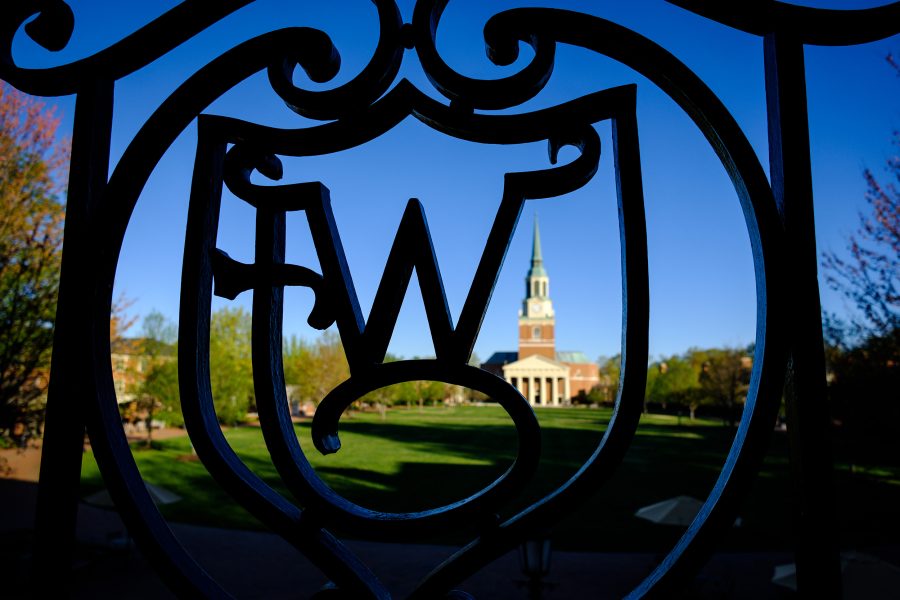Empowering sustainable change
Campus sustainability means a lot more than recycling paper and planting trees.
According to Wake Forest’s Director of Sustainability Dedee DeLongpré Johnston, sustainability is about maintaining the long-term well-being of a community.
“The Office of Sustainability is like the hub of a bicycle wheel. The people on and off-campus working to create a sustainable environment are the spokes, and we’re here to empower them to lead the change,” said DeLongpré Johnston.
In recognition of Wake Forest’s sustainability efforts, ranging from sponsoring activities for 10 Days of Celebrating the Earth to reducing campus waste, the University has received a Silver rating from the Sustainability, Tracking, Assessment and Rating System (STARS).
Like the U.S. Green Building Council’s LEED system for buildings, STARS is an assessment program developed by the Association for the Advancement of Sustainability in Higher Education (AASHE) that gives ratings of Bronze, Silver, Gold and Platinum.
On this year’s scorecard, Wake Forest excelled in administrative coordination and collaboration between students, faculty and the greater Winston-Salem community.

Incoming first-years work in the community garden on campus as they participate in the Sustainability in Action pre-orientation program.
Wake Forest was among the first universities in the country to join STARS in 2010. Today, nearly 230 institutions throughout the U.S. and Canada use the assessment system to report achievements and receive points in three main categories: education and research, operations, and planning, administration and engagement.
“AASHE engaged colleges and universities across the country and Canada in developing sustainability indicators that were specific to higher education and completely transparent,” DeLongpré Johnston said.
The Office of Sustainability facilitated efforts and gathered data from multiple departments on campus, from the Institute for Public Engagement to the Office of Diversity and Inclusion. They also worked to expand the boundary of the STARS assessment to include university-owned properties beyond campus borders such as Graylyn International Conference Center, Reynolda House Museum of American Art, the University Corporate Center, the Reynolda Business Center, and the athletic facilities on Deacon Boulevard.

Wake Forest’s Building Dashboard helps campus monitor energy use and see the impact of energy reduction efforts.
“We feel it is important to be broadly inclusive of all areas touched by the university, with the hopes that we can lead change within these broader circles of influence,” said President Nathan Hatch. “We look forward to the continuous improvement that this assessment system promotes across the broad range of entities and activities that are touched by the mission of Wake Forest University.”
STARS helps universities measure improvement in sustainability efforts and learn from similar institutions. In the upcoming year, Wake Forest will build on this year’s success by investing more time in education and research, with a new curriculum workshop for faculty, and upcoming projects related to energy and climate change.
“STARS allows the campus to clearly identify ‘strong and weak’ program areas in terms of the rating scores,” said Vice President of Facilities and Campus Services James Alty. “There are major opportunities to engage campus in energy and water conservation. Our new energy manager, Ravish Paul, is leading that effort and we have several new tools to help educate the campus community about these areas.”
Categories: Awards & Recognition, Environment & Sustainability
Media Contact
Wake Forest News
media@wfu.edu
336.758.5237



